The love of Christ the Shepherd

Thus besides His working and loving, the tenderness and afection of his heart, and His lovely care and dedication. The fire and direction of His will with which he always directs his works of love for us, goes beyond anything that can be imagined or said. There is no one so caring, no spouse so mild, no heart so tender and overcome with love nor any kind of friendship so fine that reaches or equals it. For before we love Him He loves us. Offending and despising Him He search us out. Nor can my blindness or stubborn hardness of heart outdo the burning gentleness of His sweet mercy. He wakes up early while we sleep unaware of the dangers that threaten us. He rises early before the dawn. Rather, He neither sleeps nor rests but grasping the door knocker of our hearts He raps all hours at the door and says, as it is written in the Song of Songs: Open up, my sister, friend, and wife. Open up for my head is covered with dew, the locks of my hair are drenched with the raindrops of the night. For He who guards Israel- as David says- does not sleep or become drowsy.
Truly this is what Love is in divinity for as St. John saith: God is Love. So also in the Humanity He took on from us He is love and gentleness. Like the Sun which is the source of light, all that it ever does is shine, sending out rays of clear light form itself without ceasing. Thus also is Christ who is as a fount of love that never runs out always running over with love. This same fire is always brewing in his face and figure. And throughout His dress and person are flames which pass to our eyes. All are rays of love when He appears.
That is why when He first revealed Himself to Moses He showed him only some flames burning in a bramble as if to represent Himself and ourselves in the uncouthness of our thorns and the living, burning love of His heart. Showing in visible appearance the fierce fire he had within His breast for love of His people.
(Fray Luis de León, On the Names of Christ. Shepherd)
Así que, demás de que todo su obrar es amar, la afición y la terneza de entrañas, y la solicitud y cuidado amoroso, y el encendimiento e intensión de voluntad con que siempre hace esas mismas obras de amor que por nosotros obró, excede todo cuanto se puede imaginar y decir. No hay madre así solicita, ni esposa así blanda, ni corazón de amor así tierno y vencido, ni título ninguno de amistad así puesto en fineza, que le iguale o le llegue. Porque antes que le amemos nos ama; y, ofendiéndole y despreciándole locamente, nos busca; y no puede tanto la ceguedad de mi vista ni mi obstinada dureza, que no pueda más la blandura ardiente de su misericordia dulcísima. Madruga, durmiendo nosotros descuidados del peligro que nos amenaza. Madruga, digo: antes que amanezca se levanta; o, por decir verdad, no duerme ni reposa, sino asido siempre al aldaba de nuestro corazón, de continuo y a todas horas le hiere y le dice, como en los Cantares se escribe: «Ábreme, hermana mía, amiga mía, esposa mía, ábreme; que la cabeza traigo llena de rocío, las guedejas de mis cabellos llenas de gotas de la noche.» «No duerme, dice David, ni se adormece el que guarda a Israel.»
Que en la verdad, así como en la divinidad es amor, conforme a San Juan: «Dios es caridad», así en la Humanidad, que de nosotros tomó, es amor y blandura. Y como el sol, que de suyo es fuente de luz, todo cuanto hace perpetuamente es lucir, enviando, sin nunca cesar, rayos de claridad de sí mismo, así Cristo, como fuente viva de amor que nunca se agota, mana de continuo en amor, y en su rostro y en su figura siempre está bulliendo este fuego, y por todo su traje y persona traspasan y se nos vienen a los ojos sus llamas, y todo es rayos de amor cuanto de Él se parece.
Que por esta causa, cuando se demostró primero a Moisés, no le demostró sino unas llamas de fuego que se emprendía en una zarza: como haciendo allí figura de nosotros y de sí mismo, de las espinas de la aspereza nuestra y de los ardores vivos y amorosos de sus entrañas, y como mostrando en la apariencia visible el fiero encendimiento que le abrasaba lo secreto del pecho con amor de su pueblo.
(Fray Luis de León, De los nombres de Cristo. Pastor)

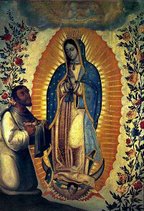
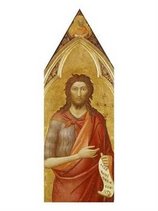


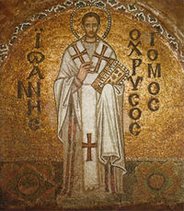
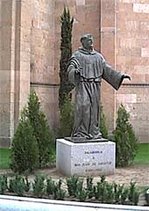

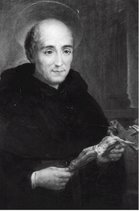
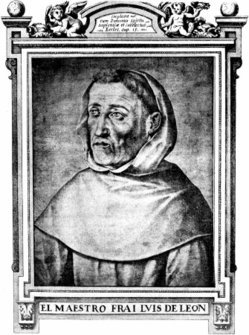





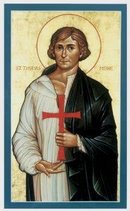
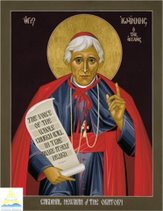




No comments:
Post a Comment